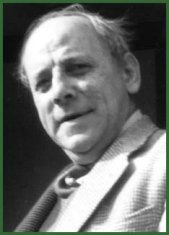
Biography
The English composer, Percy Purvis Turnbull, gained as a boy his training as a chorister in the Cathedral Church of St Nicholas in Newcastle and he took lessons from Sigmund Oppenheimer, one of the most prominent piano teachers in the city. He left school at 14, being offered a scholarship to the Armstrong College of Art to study jewellery design, but this was curtailed when his father was conscripted into the army during World War I. On finding employment he worked for the Tyne Improvement Commission, keeping up his musical interests in his spare time. During this period, he gained much stimulation from his friendship with William Gillies Whittaker, almost certainly the most influential musical personality in the north east of England at that time. William Gillies Whittaker was a man of many parts: he was a lecturer at Armstrong College (now Newcastle University), a composer, conductor, folk-song collector, and friend of Gustav Holst and Ralph Vaughan Williams. In particular he enjoyed national renown for his choral conducting with the Newcastle Bach Choir (formed by him in 1915) whose dual mission was to perform the works of J.S. Bach and contemporary choral music by British and French composers. William Gillies Whittaker’s modernist zeal made its impression on the young Turnbull who, by the time he gained a Foundation Scholarship to the Royal College of Music in 1922, was steeped in the new British and French music of the day. At the RCM he studied composition with Gustav Holst, Ralph Vaughan Williams and John Ireland, and attended classes with Dunhill, Dyson and R. O. Morris.
